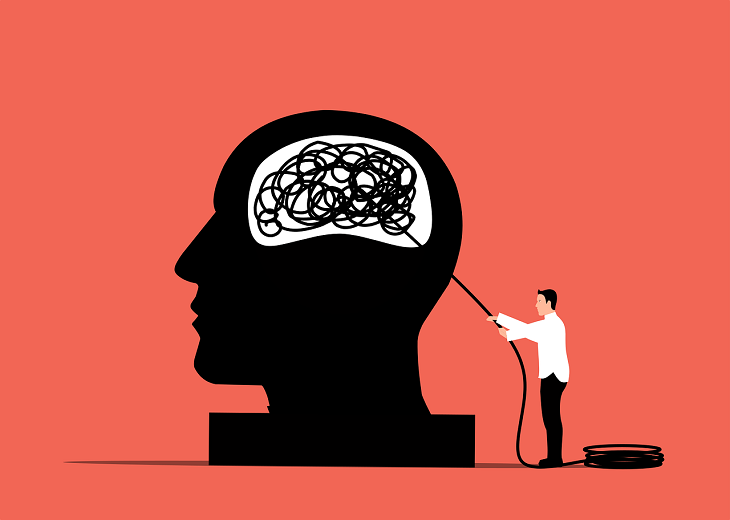THE DAILY DOSE
How Stress Can Influence Immune Function

Everybody experiences some form of stress – it’s just a normal part of everyday life. Whether it’s acute stress, such as having a really tough day at the office, or something more chronic because of a continually stressful situation or lifestyle, there isn’t a person on the planet who hasn’t felt this emotion at some point in their life.
The stress response is an evolutionary part of human existence and initially acted as a way to protect you from harm. However, it was designed solely for this purpose, and typically, when our ancestors were out of the stressful situation, their bodies returned to normal because the stress response was no longer needed.
Today, however, that initial stress response (also known as fight-or-flight) still works for you and your health, but it can be skewed in the sense that it may be activated for too long. When that happens, different bodily processes can be negatively affected. One such system that can be affected by stress is the immune system – but what is the role of stress in immunity, and can it make your immune function worse? Read on to learn more about how stress can influence immune function.

What is the relationship between stress and the immune system?
The immune system acts as your body’s first line of defense, and technically speaking, stress can actually be helpful when it comes to your immune response. As mentioned above, stress was initially a psychological response that protected people against harm. In terms of the immune system, that initial response primes the body to be better prepared to fight off infection and avoid or heal any injuries a person may have from fleeing a dangerous situation.
Since the same rules don’t apply today (the stimuli our ancestors experienced were very different to the ones we experience today!), that stress response now invokes an immune response that isn’t necessarily needed. For example, if you get stressed while waiting in line for coffee while you’re late to work, your body isn’t in any real danger – but you’re still stressed. The physiological response is still the same, and the activation of your immune system to help heal injury or prevent infection will still occur, even though it isn’t really needed.
How does stress affect the immune system?
Stress can affect the immune system in many ways because of the way it influences various bodily systems that tie into immunity. For example, the bowel is a large part of immunity since it houses immune cells needed to fight off infection. Stress can cause issue with the bowel that can lead to various unpleasant symptoms.
When it comes to immunity, stressful situations can reduce the amount of nutrients that are absorbed into the body and the gut bacteria can become imbalanced. The immune system can become weakened when the nutrients it needs are not getting absorbed, and when gut bacteria are off balance, immune function also falters.
The nervous system also gets activated during times of stress. During this activation, stress hormones such as cortisol and adrenaline are released. These are designed to help the body prepare for battle, so to speak – but when there is no battle, the body doesn’t really benefit from their release.
An overproduction of cortisol that is not used appropriately, or remains high due to constant and chronic stress, hinders the action of the immune system. This is because too-high levels of cortisol end up causing the immune system to become less responsive to the hormone, thus increasing the production of inflammatory cells that hinder the immune system’s function.

Cortisol also has the ability to disrupt how well the immune system works because of its effect on the endocrine system. The endocrine system acts as a series of messengers throughout the body to regulate the action or organs and glands. Because acute levels of stress cause inflammation to occur due to the production of cortisol, chronic stress drives chronic inflammation.
When the body’s inflammatory process isn’t acting as it should, the immune system does not activate when it needs to, because the connection between it and the glands that produce stress hormones is compromised.Altogether, when chronic inflammation and the connection pathways in the body are hindered, you are more at risk of chronic diseases.
Can stress cause a weak immune system?
As mentioned above, stress can weaken the immune system. While acute stress isn’t as much of an issue, chronic stress can cause real problems. Brief periods of acute stress are a normal and typical response that leads to the re-regulation of the immune system once the stressful situation has passed. Chronic stress, on the other hand, drives crossed wires and poor functioning because the body is in a constant state of stress when there is no actual situation that it needs protection from.
While avoiding stress completely is essentially impossible, one of the best things you can do for your immune system is practice stress reduction techniques. This could include meditation, practicing a hobby you enjoy, or exercising regularly. Keeping overall stress levels down as much as possible will ensure any acute stress you experience doesn’t stick around to harm your health in the long run.